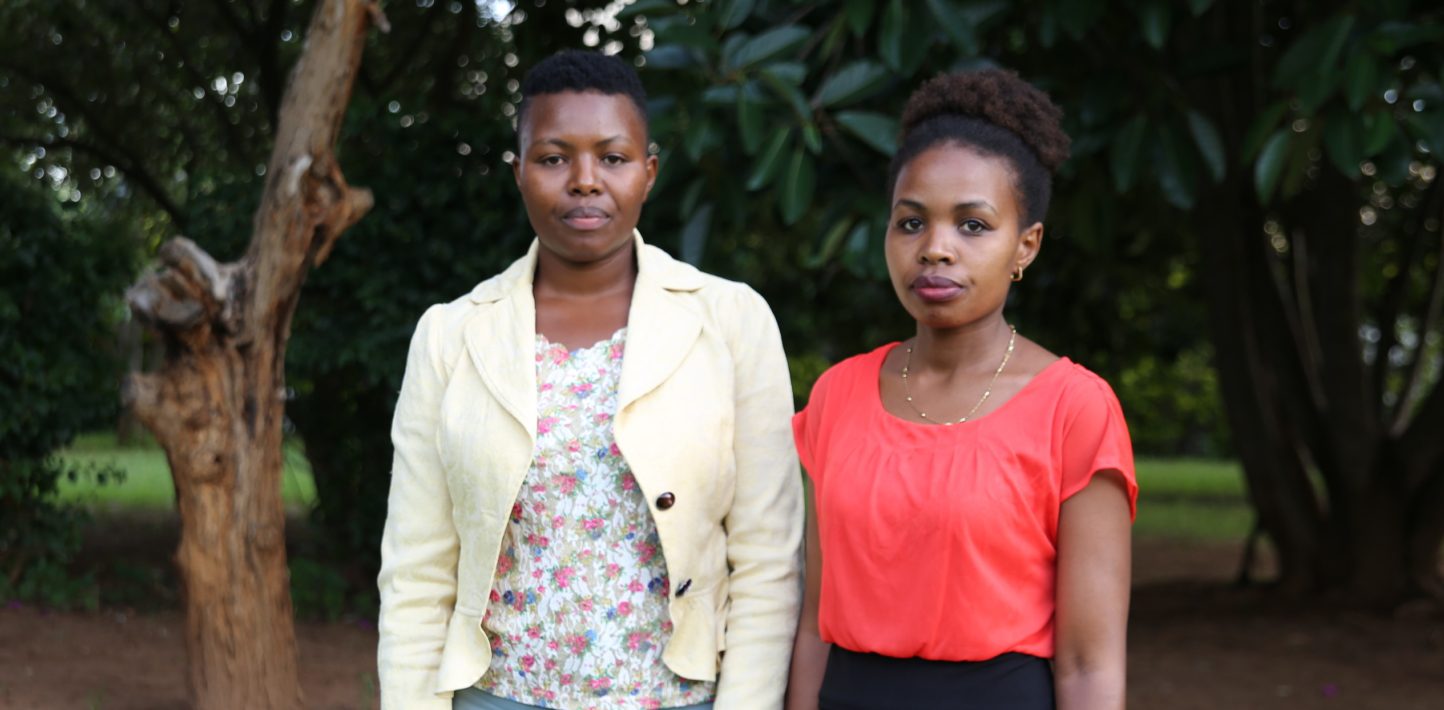Meru University Student leader, Evans Njoroge was supposed to graduate last year. He was a bright young man with a passion for human rights activism. One year ago, Evans went to join a peaceful protest against a rise in university fees, but it led to his brutal murder. As Evans’ sisters, Monicah and Miriam, try to make sense of their grief, they’ve found a strength they never knew they had…
Miriam and Monicah were at home in Nairobi, Kenya, when they found out their brother, Evans Njoroge, had been killed by a policeman. He had taken part in a demonstration outside Meru University, peacefully protesting a tuition fee hike.
“While my brother was demonstrating, a policeman led him to a quiet garden,” says Monicah, 30.
“According to witnesses, Evans was told to kneel, as the policeman placed a pistol to the back of his head and pulled the trigger.”
As Monicah recounts what happened to her brother, her voice falters and her eyes well up. Heartbreak is etched across her face, but as the eldest child in the Njoroge family she’s determined to say what she needs to.
“The policeman didn’t care,” says Monicah. “It was so wrong and so sad.”
After hearing the devastating news, Monicah together with her younger sister Miriam, 28, travelled five hours to Meru. They wanted answers, but when they arrived at the police station they were met with silence.
“When I asked what happened to my brother, staff at the police station refused to tell me whether it was a policeman who had shot my brother. It felt like [there was] a big cover-up,” says Monicah. “Evans was fighting for his rights and the rights of other students, yet they still shot him. His only crime was speaking out.”
Mixed emotions
The past year has been the hardest Monicah and Miriam have ever faced, as they try their best to come to terms with what happened. It’s been a difficult journey.
“I pray a hundred times a day. Sometimes, I feel that as time goes by, it will get better, but the more I think about it, the worse it gets,” says Miriam, who’s struggled to talk about Evans until now.
“It’s a nightmare I want to wake up from,” says Monicah. “Then I realise it really happened. I can’t call Evans on the phone, I can’t talk to him.”
Despite their heart-breaking situation, Monicah and Miriam are determined to ensure justice prevails. Neither sister ever saw themselves human rights activists, but they’ve found a strength – and a desire to speak out – they never knew they had.
“Evans wanted change to happen, but for others. He was a courageous, selfless young man who stood up against threats and tried to push for justice,” says Miriam.
Inspired by their brother, Monicah and Miriam have started sharing their story through social media, as well as at global gatherings such as Amnesty International’s Youth Summit, raising awareness of police brutality in Kenya.
Police brutality is an issue that’s rife across the country. Excessive or disproportionate use of force by police violates Kenyan and international law, yet it continues to happen.
According to a report from Amnesty International and Human Rights Watch, Kenyan police killed at least 33 people, possibly as many as 50, and injured hundreds more in some parts of Nairobi, during the elections in August 2017. Many of them were protestors.
“We often hear stories of someone being shot, but most of the time, you never imagine that it could be someone you know let alone a loved one,” says Miriam. “We have set up the Facebook page, Justice for Evans, and we’re sharing posts or videos. We’re not just seeking justice for Evans, we’re seeking justice for every student who wants to protest.”
Wake-up call
Monicah and Miriam are determined to keep their brother’s story alive – they know it’s what their brother would have wanted.
“Through our campaigning work we are encouraging others to speak out,” says Miriam. “Evans was so courageous. He was only 22, and if this had happened to another student, he wouldn’t have kept quiet. We are doing this so the world knows what’s happening in our country. We don’t want it to happen anymore.”
Monicah says she now worries about the safety of her young son and that Evans’ killing has been a wake-up call that showed that human rights violations can happen to anyone.
“I never thought I’d be talking about police brutality and standing up for human rights,” says Monicah. “You never know what people are going through until it happens to you. Police brutality didn’t start with Evans, and it won’t stop. That’s why we need to speak up.”
Amnesty International Kenya was one of the first organisations to reach out to Monicah and Miriam and offer support at a time when the sisters didn’t know where to turn. Through support groups and counselling, they’ve started to come to terms with what happened.
“We didn’t even have to call Amnesty, they contacted us and they are there for us,” says Monicah. “We have weekly meetings with Amnesty and they are helping us seek justice. It gives us courage and strength. Evans was brave, selfless and vocal.
He died doing what he felt in his heart was right. I want him to be remembered as someone who stood for truth, justice and for other people.”
“Evans stood up against threats and still tried to push for justice and the rights of other students,” agrees Miriam. “We want to do the same.”
Murder charges have been filed against the police officer who allegedly shot and killed Evans. The trial resumes on 5 March 2019: just six days after the one-year anniversary of Evans’ killing.


